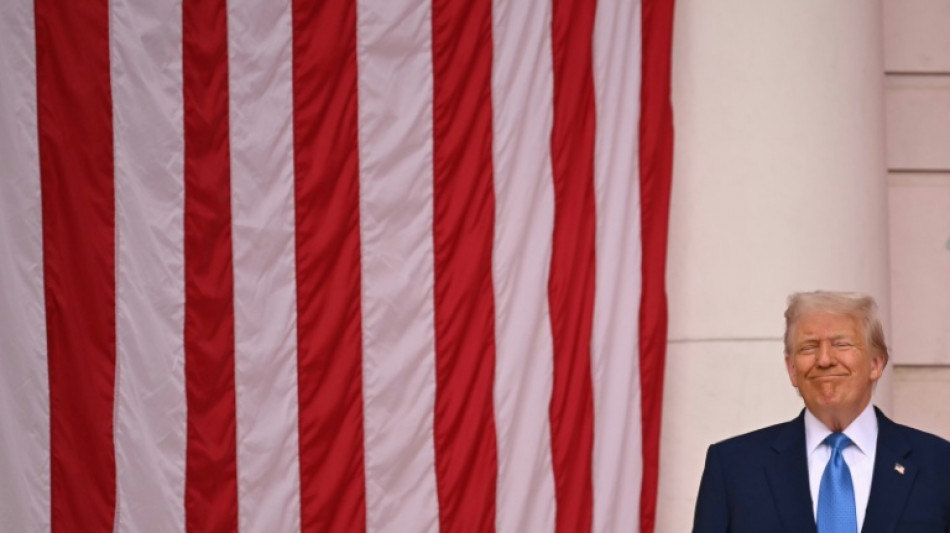
-
 Swiss court rejects Islamic scholar Ramadan's rape conviction appeal
Swiss court rejects Islamic scholar Ramadan's rape conviction appeal
-
Russian attack kills 14 in Kyiv, including three children

-
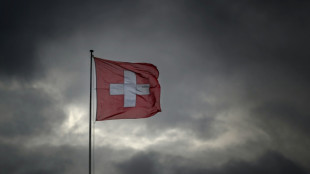 Swiss economy set to slow due to US tariffs
Swiss economy set to slow due to US tariffs
-
Hong Kong media mogul Jimmy Lai verdict to come 'in good time': judge

-
 Swiss court rejects Tariq Ramadan rape conviction appeal
Swiss court rejects Tariq Ramadan rape conviction appeal
-
Asian markets mixed after Nvidia earnings

-
 Rising Australian golfer makes comeback after losing sight in left eye
Rising Australian golfer makes comeback after losing sight in left eye
-
Scandal facing sister of Argentina's president: 3 things to know

-
 Need a pee? Japan has QR code for that
Need a pee? Japan has QR code for that
-
Five things to know about Guyana

-
 Guyana, emerging oil superpower, elects new leaders
Guyana, emerging oil superpower, elects new leaders
-
Nigerian designer pushes 'Afro-lux' onto the global fashion scene

-
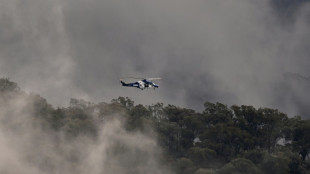 Gunman still at large after Australian police killings
Gunman still at large after Australian police killings
-
Norway, environmentalists back in court over oil field permits
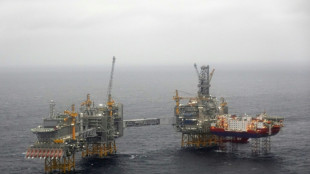
-
 Trump moves to limit US stays of students, journalists
Trump moves to limit US stays of students, journalists
-
Messi brace propels Miami into Leagues Cup final

-
 Attack and never give up: Inside Japan's deadly boxing scene
Attack and never give up: Inside Japan's deadly boxing scene
-
Russia hits Kyiv with 'massive' deadly overnight strikes

-
 Injury-hit Wallabies welcome back Alaalatoa for Argentina Tests
Injury-hit Wallabies welcome back Alaalatoa for Argentina Tests
-
Long-awaited pension payments relief for Afghan retirees

-
 Chivu's Inter turning the page on Champions League humiliation
Chivu's Inter turning the page on Champions League humiliation
-
Japan confident on wind power after Mitsubishi blow
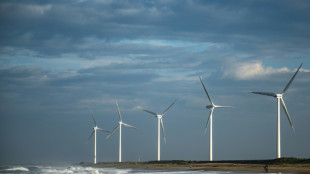
-
 Hamburg host derby rivals St Pauli in German top-flight reunion
Hamburg host derby rivals St Pauli in German top-flight reunion
-
China to bolster non-Western alliances at summit, parade
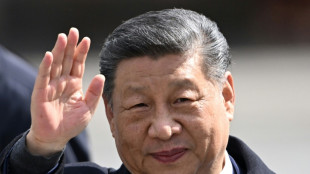
-
 Climate-driven wildfires reversing pollution progress in N. America: study
Climate-driven wildfires reversing pollution progress in N. America: study
-
Sabalenka eyes Fernandez revenge in US Open third round

-
 White House fires US health agency head after she refused to quit
White House fires US health agency head after she refused to quit
-
Super Rugby to mark 30th anniversary with tweaks to finals format

-
 Messi brace puts Miami into Leagues Cup final
Messi brace puts Miami into Leagues Cup final
-
Alcaraz races into US Open third round as Djokovic, Sabalenka advance

-
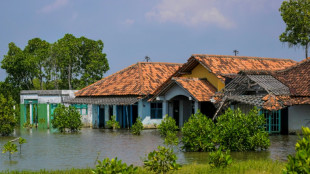 Can a giant seawall save Indonesia's disappearing coast?
Can a giant seawall save Indonesia's disappearing coast?
-
Motive probed for US shooting that killed two children, injured 17

-
 Bisexual ex-Australian Rules player praised for 'courage and bravery'
Bisexual ex-Australian Rules player praised for 'courage and bravery'
-
South Korea to ban mobile phones in school classrooms

-
 Alcaraz banishes US Open demons to reach third round
Alcaraz banishes US Open demons to reach third round
-
Kipchoge feeling the pressure ahead of Sydney Marathon

-
 Clooney and Netflix team up for Venice festival spotlight
Clooney and Netflix team up for Venice festival spotlight
-
Trump stamps 'dictator chic' on Washington

-
 UN Security Council to decide fate of peacekeeper mandate in Lebanon
UN Security Council to decide fate of peacekeeper mandate in Lebanon
-
Alcaraz sprints into US Open third round as Djokovic advances

-
 Qantas says profits up, strong travel demand ahead
Qantas says profits up, strong travel demand ahead
-
'Perfect storm': UK fishermen reel from octopus invasion
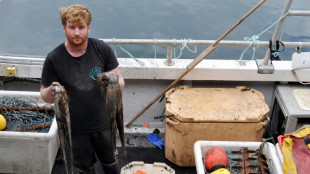
-
 Alcaraz crushes Bellucci to reach US Open third round
Alcaraz crushes Bellucci to reach US Open third round
-
Townsend reveals Ostapenko 'no class' jibe after US Open exit

-
 Israel ups pressure on Gaza City as Trump talks post-war plan
Israel ups pressure on Gaza City as Trump talks post-war plan
-
NATO says all countries to finally hit 2-percent spending goal

-
 Rangers humiliated, Benfica deny Mourinho's Fenerbahce Champions League place
Rangers humiliated, Benfica deny Mourinho's Fenerbahce Champions League place
-
Shooter kills two children in Minneapolis church, injures 17 others

-
 AI giant Nvidia beats earnings expectations but shares fall
AI giant Nvidia beats earnings expectations but shares fall
-
Kane rescues Bayern in German Cup first round


Trump's drive for ocean bed mining threatens law of the sea
US President Donald Trump's move to sidestep global regulations and begin pushing for seabed mining in international waters could pose a wider threat of competing countries claiming sovereignty over the ocean, experts say.
Trump last month signed an executive order to accelerate the permit-granting process for deep-sea mining in domestic and international waters, citing an obscure 1980 US law.
And the Canadian deep-sea mining frontrunner The Metals Company has already filed an application in the United States to conduct commercial mining on the high seas -- bypassing the International Seabed Authority (ISA). This is the body entrusted by a United Nations convention with managing the ocean floor outside of national jurisdictions.
Ocean law is largely guided by that accord -- the United Nations Convention on the Law of the Sea (UNCLOS), first signed in 1982 to prevent "a competitive scramble for sovereign rights over the land underlying the world's seas and oceans," according to Maltese diplomat Arvid Pardo, the convention's forebearer.
The United States never ratified the convention, which took effect in 1994, though it has applied many of its clauses.
Coalter Lathrop, an attorney at the US law firm Sovereign Geographic, told AFP that the United States is "a huge beneficiary of the parallel set of customary international law rules" despite not being a party to UNCLOS.
For instance, the United States has one of the largest Exclusive Economic Zones (EEZ) which gives states sovereignty over maritime areas up to 200 nautical miles (370 kilometers) from their coastline -- protecting them from foreign fishing boats, among other extractive industries.
If the US enjoys the benefits of ocean law, Lathrop argues, "but then you disregard the other part of the package deal -- that the seabed and its minerals in areas beyond national jurisdiction are the common heritage of humankind -- that is going to be destabilizing, to say the least, for the general legal order of the oceans."
"US unilateral permitting could lead to the disintegration of a system that has been carefully curated and created by the United States, largely for its own benefit," he added.
- 'Unraveled' -
The US and Canadian moves sparked an international outcry from ISA member states, including China, whose foreign ministry spokesman warned it violates international law.
ISA secretary general Leticia Carvalho expressed similar concern, saying that "any unilateral action... sets a dangerous precedent that could destabilize the entire system of global ocean governance."
The Metals Company does maintain contracts with ISA members like Japan -- where it has a partnership with smelting company Pamco. And experts note such ISA member states could invoke their obligation to UNCLOS to enforce maritime law on The Metals Company via these proxies, even if it ultimately receives a permit from the Trump administration.
Guy Standing, an economist at the University of London, told AFP: "It's the most dangerous thing he's done so far," referring to Trump.
If marine laws "were to come sort of unraveled," Standing said, "you could have a carve up in different parts of the world, with Russia, China and America carving up the Arctic."
However, not all scholars in the field are in agreement.
James Kraska, a professor of international maritime law at US Naval War College, said "it's naive to think the United States has that kind of influence."
"I just disagree with the people that are saying that it's somehow a legal obligation to comply with a treaty that you never joined," he told AFP.
"I just can't see any way that it's unlawful. I understand that there's sort of political opposition to it, but I would just distinguish between politics and the law."
Q.Najjar--SF-PST
